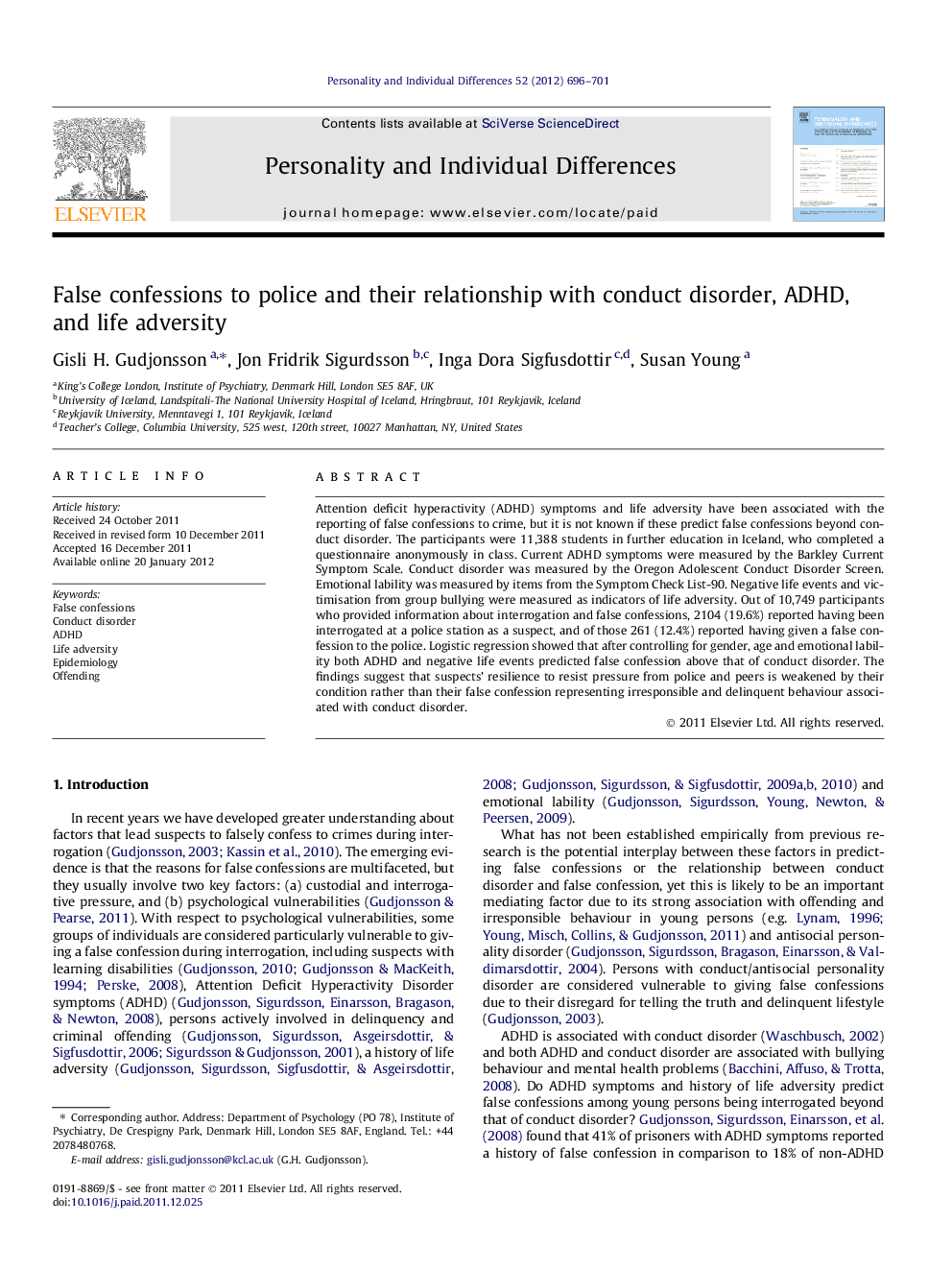| Article ID | Journal | Published Year | Pages | File Type |
|---|---|---|---|---|
| 891092 | Personality and Individual Differences | 2012 | 6 Pages |
Attention deficit hyperactivity (ADHD) symptoms and life adversity have been associated with the reporting of false confessions to crime, but it is not known if these predict false confessions beyond conduct disorder. The participants were 11,388 students in further education in Iceland, who completed a questionnaire anonymously in class. Current ADHD symptoms were measured by the Barkley Current Symptom Scale. Conduct disorder was measured by the Oregon Adolescent Conduct Disorder Screen. Emotional lability was measured by items from the Symptom Check List-90. Negative life events and victimisation from group bullying were measured as indicators of life adversity. Out of 10,749 participants who provided information about interrogation and false confessions, 2104 (19.6%) reported having been interrogated at a police station as a suspect, and of those 261 (12.4%) reported having given a false confession to the police. Logistic regression showed that after controlling for gender, age and emotional lability both ADHD and negative life events predicted false confession above that of conduct disorder. The findings suggest that suspects’ resilience to resist pressure from police and peers is weakened by their condition rather than their false confession representing irresponsible and delinquent behaviour associated with conduct disorder.
► We examined if ADHD and life adversity predicted false confessions beyond conduct disorder. ► ADHD and life adversity both predicted false confessions beyond conduct disorder. ► The findings show the importance of ADHD and life adversity on false confessions.
